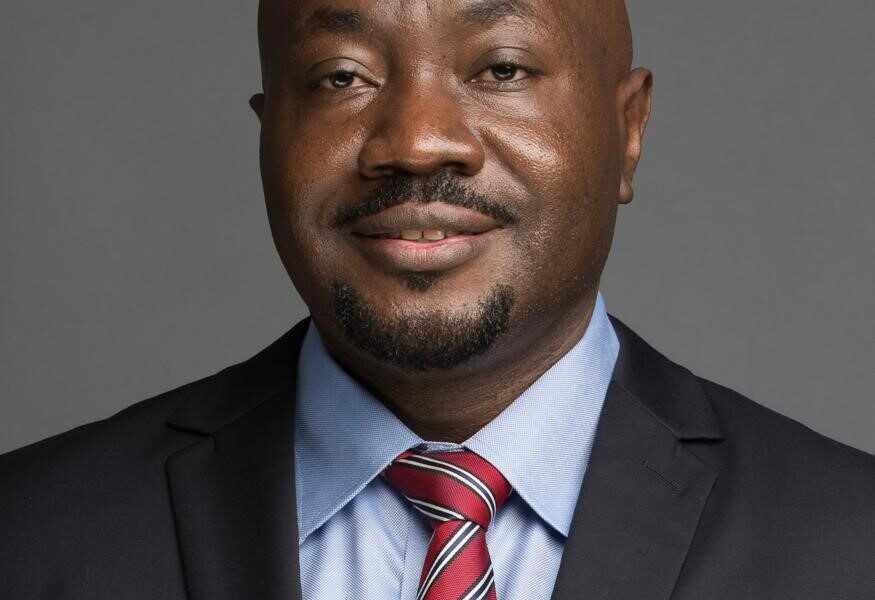By Hon. Eng. Boutros Magaya Nbangano, MP- TNLA
“TNL Leadership is fully responsible for its failures, in-effectiveness and largely responsible for current economic crises”
1. Introduction
This article seeks to address the genuine concerns expressed by citizens regarding the performance of Parliament, particularly in light of the ongoing economic crises. Many members of the public have voiced deep frustration over the suffering and welfare of our citizens, especially amid the dire economic conditions they face. It also intends to affirm to the Public that the majority of Members of Parliament (MPs) are acutely aware of this suffering— they too are affected and are tirelessly advocating for the needs of our communities. However, their efforts are often hindered by significant constraints imposed by the current paradigms of TNLA leadership.
Additionally, this article responds to unfounded claims made by some MPs associated with the current Leader of TNLA, who have been attempting to shift the blame to the President (the head of the Executive) for both the broader economic crises affecting citizens, the welfare of MPs in Parliament, and the EAC IPG games crises. Heated debates have unfolded within the Young Parliamentary Caucus (YPC) regarding these issues, and I have frequently intervened to defend H.E. the President, as I believe these analyses are misguided.
The challenges facing MPs are complex and multifaceted. While many MPs are vocal in addressing critical issues—including the economy, healthcare, infrastructure, and the overall effectiveness of Parliament—they often encounter systemic barriers that impede their efforts. It is not a lack of commitment to the people that hampers their advocacy; rather, it is the difficult political dynamics and bully within the TNLA that complicate their ability to effect swift and meaningful change. This is explained in details in section three “A Comparative”.
The critical point, to emphasize is that Parliament is an independent arm of government. The Executive Branch do not oversee Parliament; instead, Parliament operates autonomously within its constitutional mandate to represent the people, legislate, and provide robust oversight of the executive. The Constitution grants Parliament the power to supervise the executive and to guide the government in the right direction. Therefore, Parliament bears significant responsibility for government failures.
It will have been observed that, H.E. President Salva Kiir Mayardit has repeatedly demonstrated his commitment to both MPs and citizens, directing the payment of overdue salaries and medical allowances during prior occasions and at recent Council of Ministers meetings. In contrast, the TNLA Leadership and its Assembly Business Committee (ABC) have not exhibited the same level of commitment to citizens by issuing necessary resolutions and directives to the Ministry of Finance and Economic Planning. Such initiatives would have alleviated financial concerns among lawmakers and enhanced the welfare of citizens. Thus, the key question to ask is why the country failed to pay salaries for 12 months? Is the claim of financial in-availability really valid?
2. Debunking Claims of Financial In-availability to Pay Salaries
The assertion that South Sudan lacks the financial resources to pay salaries or deliver services is nothing more than a fallacy perpetuated by economic non-experts and politically motivated individuals seeking to manipulate the narrative or undermine the Government and President.
A closer analysis of the budget and economic reports reveals a starkly different reality. Firstly, the Ministry of Finance has dramatically overspent its budget by an astonishing 3,800%, indicating a mismanagement of funds rather than a genuine lack of resources. Moreover, just three months prior to the budget approval, an economic sector report highlighted $750 million in revenue, showcasing the country’s financial potential. Furthermore, the Commissioner General of the NRA had clearly informed MPs that they (NRA) could raise over SSP 1.1 trillion within the year 2024//25 Budget, further undermining claims of financial constraints. Methodically, the current oil revenue from Banteu and Tarjaz area is estimated to be at least
$58 million per month based on current oil production estimates from MoP (Approx 60,000 Barrel per day for GPOC and SPOC).
Additionally, H.E President himself has asserted that there are adequate resources available to meet the country’s expenses, suggesting that any contrary claims are politically motivated. Finally, with other minerals, loans, and bilateral investments anticipated to have exceeded $1 billions in the past year alone, the narrative of financial unavailability lacks credibility. If the Economic Wizards continues to propagate this misleading information, it not only questions their qualifications as a technocrats or economist to this matter but also reflects a concerning lack of rigor in the economic analyses presented to or by the Transitional National Legislative Assembly (TNLA). We have seen irregularities with large lumpsum payment to contractors outside the budget. Last year budget, only 25% of revenue generated could have paid salaries.
Some argue that Oil Shut down is to be blamed. However, Oil shutdown started only this year in March 2024? What is therefore justification of continued deterioration of economy continuously for three years since 2021? Oil volatility is a normal phenomenon. Why the Parliament failed to ensure the Government is paying into Oil Stabilization funds and into Future Generation funds since 2021? Building refineries is not a rocket science, why the government failed to build refinery since independence? Why we failed to construct alternative route to transport crude oil despite large amount of funds wasted over years on infrastracture?
Thus, current evidence suggests that the country possesses sufficient financial resources to pay salaries and cover other key services. Given this, it is essential to critically examine the factors contributing to the perceived dysfunction of Oversight to ensure a functioning government.
Historically, the first Parliament in UK started as Council of Advisers to the King. While the President often stated that he is looking for Solutions, surprisingly, the current Parliament Leadership is often explained that (there is no money and there is no solution). So, what solution has the current TNLA introduced to address the economy? If not, why continue having a Parliament? Let’s first begin by critically examining some Leadership characteristics.
3. A Comparative Analysis of Parliamentary Governance and Leadership: Historical TNLA Administrations vs. the Current Leadership
It is often argued that H.E. Prof. James Wani Igga was the greatest Speaker of Contemporary Parliament in SSD (Post CPA) with stable economy, regular salaries and MPs emolument paid
and services delivered and democratic principles promoted. The follow up Speakers also performed satisfactorily in the midst of wars, the dollar market flotation, and covid pandemics.
Despite the country going through many challenges since 2011 to date include war, covid, austerity. Until three years ago, both citizens and MPs did not face the same extreme hardship that plagued us today, and for the last three years, a period that was ostensibly marked by peace and the revitalized peace agreement (R-ARCSS).
It should be noted that, during previous TNLA leadership, (which I had the privilege to witness) under Rt Hon Anthony Makana and Rt Hon Ubuch Okwac, citizens of South Sudan did not endure such prolonged periods without salaries—there was never a 12-month continues gap without payment. The economy did not suffer a staggering collapse of 1,000%, as demonstrated by the dollar’s value dropping from $1 = SSP 450 in 2021 to its current state in just three years.
On the side of the Parliament, during previous TNL Administration, MPs had their medical expenses processed through the finance department annually, a practice that was unfortunately ceased under current TNLA Administration. In stark contrast, under current one, MPs have not received their medical allowances since 2022. Never before had 90 MPs died under a single administration. This raises significant concerns about the duty of care by current Leadership.
Additionally, MPs previously received operational support every month, which has not been the case during current Speaker tenure. During Previous leadership, when Parliament had an operational budget of approximately SSP 100 million, each MP received support from these funds on monthly bases. Moreover, Under Rt Hon Makana, the President agreed to allocate
$40,000 to each MP, and after Rt Hon Ubuch took office, an additional $25,000 was provided. All allowances, including bonuses for Christmas, Easter, and Eid, were consistently paid— even during wartime.
Using these funds, most MPs were able to visit their constituencies and engage with their communities and support their people in their states, counties and payams. This is now virtually impossible! Thus, is there a sinister plan to weaken MPs ahead of election?
To put things into Perspective, the following is a useful comment recently made by a Member of Parliament during a heated debate in one of Parliamentary Forums:
“Cde Boutros, the issue is, why the leadership of the parliament is much concerned about the broken statue and we have sick MPs on the hospitals beds and some are moving with diseases and they don’t talk about them? We are not blind we always see bags of money carried away in the name of operation but when you enter the committees there is no electricity, water, papers or ink , printers are all not working government top secrets documents are typed outside the parliament where does 1.6 billion ssp go”.
Moreover, the problems identified by MPs are numerous, but the key issues include: The suppression of democratic principles in the appointment of chairpersons and deputies, lack of open debate on fundamental issues and limited opportunities regarding certain key bills such as Audit, unequal treatment directed at other chairpersons and MPs, and an authoritarian leadership style that frequently interferes with democratic processes, even during caucus meetings, to mention a few.
In summary, most of MPs’ argue that their emoluments seem to have vanished since the arrival of current Speaker of TNL in 2021. Despite current leadership being characterized by a large operational budget last year of more than SSp1.5 billion (last year budget), there is widespread uncertainty regarding the allocation and spending of these funds. Most MPs have been unable to visit their constituencies or access any operational budget support, a stark departure from previous administrations. Thus, statistically speaking, current Administration is the only one since the Comprehensive Peace Agreement (CPA) that has consistently failed to pay MPs their dues: such as allowances for opening, recess, clothing, travel, and medical expenses reducing MPs to below poverty level. This raises some critical question: why is the current administration the only one in which MPs have completely failed to receive most of their dues for three years? Do you think a malnourished MP can fight for the people? Is there a deliberate plan by current TNL Leadership to weaken MPs?
Instead of addressing these issues, the Speaker has focused on extravagant, fantasy and seemingly unproductive trips to acquire educational credentials, titles, books, etc while transparency regarding the budget remains elusive, economy remains in crises. Gradually, to date we have not seen a strong resolution from the Assembly Business Committee (ABC) or the August House regarding the economy, or citizens’ welfare. This indicates that the ABC under current Leadership has not demonstrated the same level of commitment as shown by the President and his Council of Ministers. It is useful to note that during closed meetings of the TNLA, the Speaker explicitly stated that the country has no funds or solutions available to pay salaries, etc. This statement clearly contradicts the President’s assertion that resources are available to meet these obligations, as well as the budget report. So, the question is why the Speaker often contradict the President?
4. Enhancing Accountability and Oversight: The role of Parliament tin tackling National Economic Crises and developing effective solutions
This section emphasizes the need for developing solutions through parliamentary responsibility while addressing the complexities of the current crises. It also invites readers to consider the broader implications of accountability in governance.
It’s crucial to recognize that the challenges we face are often complex and involve multiple stakeholders. Blaming game between parliament and executive oversimplifies these issues and distracts from the urgent need for effective resource allocation and prioritization by Parliament.
Key Points of Consideration: The Solution is in a robust Oversight!
a) Historical Context: The previous leadership of TNLA did not experience such severe economic decline or prolonged salary delays. The current TNLA’s Leadership role as a variable or factor in this equation cannot be overlooked as it has totally abandoned its oversight role an began to operate as an Institution within or supervised by Executive. Mathematically speaking, a variable plays more significant role to a constant. Notice, the Legislature is a key variable in current crises since 2021.
b) Separation of Powers: As stated previously, it’s important to note that Parliament operates independently from the executive branch with clear oversight role over the Executive. The Parliament is not headed by the head of the executive, nor is it supervised by them. It is exactly the contrary. Therefore, it is both unconvincing and legally impossible to hold the head of the executive responsible for the problems within
Parliament. Off course Open dialogue and collaboration are crucial for addressing these challenges constructively, including the crises of economy, salaries, etc.
c) Accountability Measures:
– While summoning ministers is vital, it is insufficient alone to combat financial mismanagement. We require comprehensive financial oversight tools, such as:
– Integrated Financial Management Information System (IFMIS) for real-time budget tracking.
– Strengthened Public Accounts Committee (PAC) for thorough government spending reviews.
– Regular independent audits to ensure compliance and assess financial practices.
– Legislative frameworks establishing clear public finance management laws that include penalties and sanctions. None of these have ever been implemented.
– Transparency Initiatives: Promoting public access to budget documents and audit reports is essential for civic engagement and accountability.
d) Leadership Competence: The TNLA must prioritize capable leadership over personal affiliations. Modern management stated that effective governance depends on qualified individuals who can navigate complex issues. Appointing a Leadership mostly of friends, cheer leaders and supporters will simply not work. The evidence is conclusive.
To mention a few, If the current TNLA was to adopting these recommendations, they could have enhanced the effectiveness of our legislative body and better held the executive accountable for its fiscal responsibilities. Sadly, this is not the case.
5. Conclusion: The key to Navigating current Economic Crises Lies in Effective Implementation of Parliamentary Oversight tools
In conclusion, this document presents a compelling defence of President Salva Kiir amidst the ongoing crises within the Transitional National Legislative Assembly (TNLA) and the broader economic challenges facing South Sudan.
The assertion is that Parliament is responsible for its own failures, particularly in managing or mismanaging financial resources and addressing the economic downturn, highlights a critical need for accountability and effective governance. The article underscores the importance of recognizing the independence of Parliament and its constitutional mandate, which operates separately from the executive branch.
Moreover, the historical context provided illustrates that previous leadership structures within the TNLA were more effective in managing resources and ensuring timely salary payments to MPs, Civil Servants and our Galant Organised Forces. This comparison raises questions about current poor leadership practices and questionable financial management suggesting a significant decline in operational efficiency.
The analysis also debunks claims of financial unavailability, pointing to evidence of mismanagement rather than a lack of resources. By advocating for enhanced oversight mechanisms and accountability measures, the article calls for a re-evaluation of parliamentary responsibilities in addressing national economic crises.
Ultimately, for South Sudan to navigate its current challenges effectively, there must be a concerted effort to prioritize transparency, accountability, and capable leadership within Parliament. Only through such reforms can the country hope to stabilize its economy and foster a more responsive governance framework that serves the interests of all citizens.
The Majority of genuine and patriotic MPs acknowledge the pain and frustration that many feel regarding the state of our nation. I have personally developed six publications addressing key issues, including the economy, petroleum, salaries, and infrastructure. These documents reflect our dedication to creating substantive change and improving the lives of all South Sudanese.
Thus, we must work together toward a future where every citizen is valued, and no one is left behind. Your voices matter, and your concerns will continue to guide our efforts as we strive to build a more just and equitable society. This can only happen when TNL is competent and effective!
Given the current crises of TNL Leadership. Clearly, there is massive call by MPs for radical reform of the Parliament. MPs and clearly Citizens want have a Parliament that can produce solution not a fantasy show Parliament that is creating more problems. There is need to for solutions to address the many problems facing the parliament, government, economy, salaries.
To the Public, thank you for your resilience and for holding us accountable. Together, we can foster a dialogue that leads to real sustainable solutions and a brighter future for all.
We don’t accept the idea of champaign bottles for few! But want to see bread & milk for all. Together, we can Make South Sudan Great Again (MASSGA).
Wishing you all a Happy New Year 2025, let it be a year for transformation, change, progress, prosperity!
God Bless South Sudan!
God Bless our beloved President, H.E. Gen Salva Kiir Mayardit!
God Bless the resilient MPs, Leaders, Civil Servants and Galant Forces of South Sudan! God bless the Great Citizens of South Sudan. Aluta Continua!




